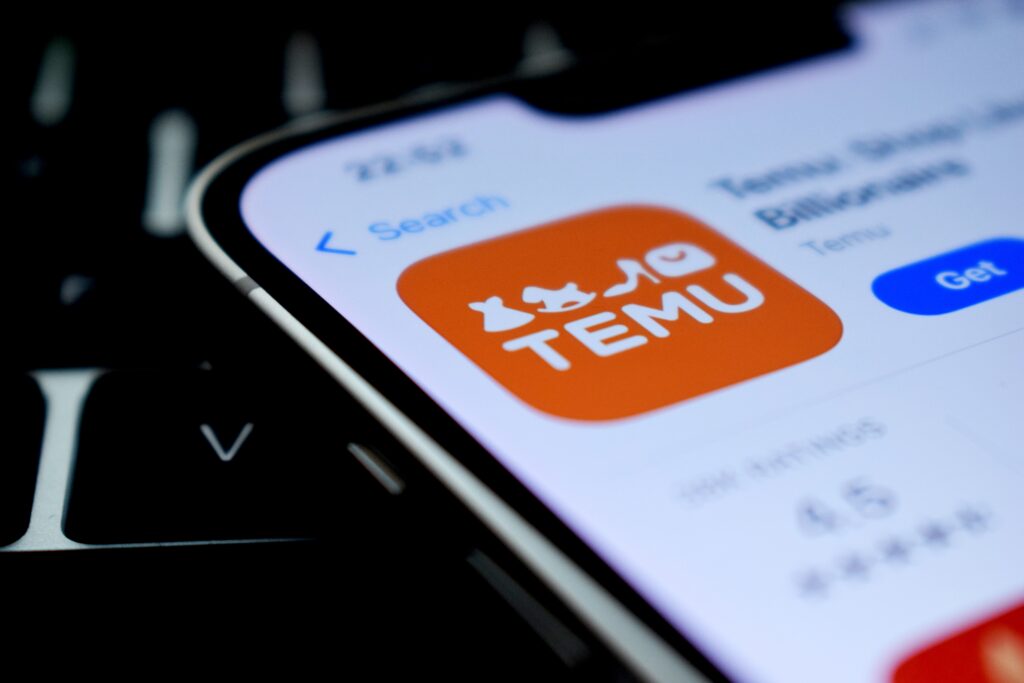Online retail giant Temu has stopped shipping products directly from China to American customers. The company will now use U.S.-based sellers to handle all orders locally. The move follows new U.S. trade rules that remove a key exemption for low-cost packages, forcing platforms like Temu and Shein to change how they deliver goods. The policy shift could lead to higher prices for shoppers and more work for customs officials.
Local Fulfillment Now Replaces Direct Shipping
Temu confirmed that it has fully switched to a “local fulfillment model” for U.S. buyers. This means American sellers will now process and ship orders from within the United States. The platform said the change will help it expand and offer new business opportunities to domestic partners.
“All U.S. transactions now involve local sellers and fulfillment from within the country,” Temu stated. The company has actively reached out to American businesses, inviting them to become fulfillment partners on its platform.
This decision marks a major shift for Temu, which had relied heavily on direct shipments from China. It also highlights the growing pressure on global retailers to follow stricter trade policies.
What Changed: The End of the De Minimis Loophole
At the heart of this shift is a change in the “de minimis” rule, a U.S. law that allowed duty-free entry for imports valued under $800. This rule made it cheaper and faster to send small packages from overseas. Before the rule was revised, over 90% of imports to the U.S. used this exemption, according to Customs and Border Protection.
Temu and fellow online retailer Shein both took full advantage of the loophole to offer ultra-low prices. But critics argued that the policy hurt American sellers and made it easier to smuggle harmful goods, including synthetic drugs.
The rule, first introduced in 1938, was meant to cut red tape and save costs on low-value imports. But as online shopping exploded, so did the number of duty-free packages—jumping from 140 million to over a billion in just ten years.
Rising Trade Tensions and New Tariffs
The policy change comes as the U.S. government tightens its stance on Chinese imports. After returning to office in January, President Trump reimposed high tariffs on goods from China. Some items now face tariffs as high as 245%, including a new 120% tax on all packages under $800. Starting in June 2025, a flat fee of $200 will also apply.
The goal, officials say, is to level the playing field for American companies and reduce illegal imports. However, experts warn that consumers may face higher prices, with some estimates suggesting costs could rise by up to $30 billion a year.
Combatting Drug Trafficking Through Small Parcels
A key reason behind the crackdown is to stop the flow of fentanyl and other synthetic drugs. U.S. officials claim Chinese exporters used low-value shipments to hide drug packages. According to government data, synthetic opioids like fentanyl are linked to over 75,000 deaths annually in the U.S.
Trump’s executive order—initially paused in 2024 due to logistical issues—was reactivated in early 2025. During the brief suspension, the U.S. Postal Service even stopped accepting packages from China and Hong Kong.
But some experts say most fentanyl enters through land borders, especially from Mexico, and not via air parcels. Critics argue that removing the exemption may not stop drug smuggling and could strain customs agents instead.
Global Retail Faces New Rules in Other Countries
The U.S. isn’t alone. The United Kingdom is reviewing its own £135 exemption for imports, while the European Union plans to end duty-free status for parcels under €150. British officials say these rules undercut local stores. The EU also aims to stop abuse of the rule by global sellers.
If adopted, these changes may lead to higher prices in Europe, much like the expected impact in the U.S. As international trade laws shift, global retailers like Temu and Shein must adapt or risk losing access to major markets.
Customs Could Face Heavier Workloads
U.S. customs already inspects many low-value parcels. But without the de minimis rule, every package may now need full processing. Critics warn that this could overwhelm border agents, who may be pulled from high-risk areas like the southern border.
The National Foreign Trade Council cautioned that the policy change could shift resources away from fighting real threats. “Removing the exemption may sound tough,” one analyst noted, “but it risks making enforcement even harder.”
What This Means for American Shoppers
For now, U.S. buyers may notice higher prices and longer delivery times. But Temu says its move to local fulfillment will help maintain service quality and give American sellers more room to grow.
While the full effects of the rule change are still unfolding, one thing is clear: the era of duty-free Chinese shopping sprees is coming to an end.
